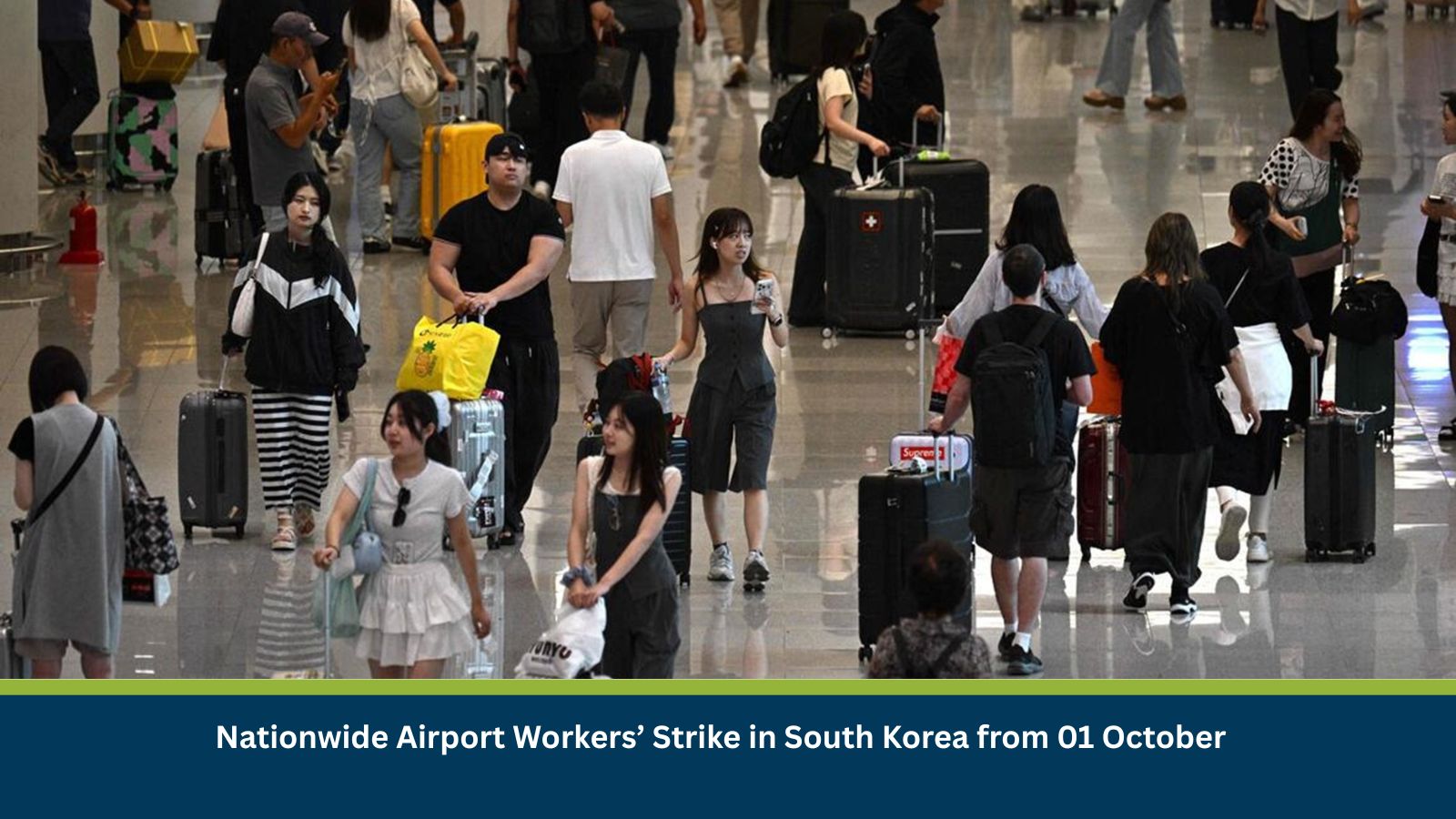What is Risk Analysis in the Context of Travel Risks Events
Travel risk analysis examines the effects of transport disruptions -such as strikes, infrastructure failures, or geopolitical events on safety, mobility, and commerce. In South Korea, labor strikes at airports have historically caused widespread cancellations and passenger congestion. With the event coinciding with the Chuseok holiday rush, the scale of disruption is amplified, reflecting how transport strikes intersect with cultural and seasonal travel surges.
Executive Summary
- Date of Incident: 01 October 2025
- Location: Seoul, South Korea (nationwide airports)
- Risk Category: Travel Risks
- Severity Score: 4/5
- Confidence Level: 90%
Airport workers’ unions launched a nationwide strike from 01 October, disrupting flights at Incheon, Gimpo, Jeju, Gimhae, and other airports. The timing during the Chuseok holiday period magnifies travel disruption, stranding passengers and affecting air cargo operations. Historical precedent suggests such strikes last three to seven days, with cascading impacts on businesses, logistics, and tourism. Severity is high due to the nationwide scale, with high confidence in significant operational impact.
Known Hotspots and Sensitive Areas
- High Impact: Incheon International Airport (ICN), Gimpo (GMP), Gimhae (PUS), Jeju (CJU).
- Medium Impact: Daegu, Cheongju, and regional airports.
- Sensitive Zones: Passenger terminals, check-in counters, baggage handling, and customs facilities.
- Pattern: Strikes often coincide with high-travel holidays, leveraging peak traffic to maximize bargaining power.
Impact on Transportation and Services
- Flights: Mass cancellations and delays nationwide.
- Passenger Mobility: Surge in demand for KTX high-speed trains, intercity buses, and ferries.
- Cargo: Severe backlog for perishables, electronics, and pharmaceuticals reliant on air freight.
- Roads: Congestion on expressways leading to airports, especially Incheon Expressway and Olympic-daero.
Recommended Actions
- Travel: Suspend non-essential travel to/from South Korea; reroute critical travel through Japan, China, or alternative hubs.
- Logistics: Redirect air cargo via sea freight through Busan Port or other East Asian air hubs; activate buffer stock strategies.
- Communication: Notify clients and employees of delays; use clear messaging on revised schedules.
- Continuity: Create a strike-response task force; secure redundancy in IT and operations; review contracts for legal exposure to passenger rights claims.
Multidimensional Impact
The strike coincides with Chuseok, amplifying public frustration and gridlock. As demand shifts to rail and buses, already congested transport networks will face added strain. The event may overshadow ongoing socio-political protests in Seoul, diverting public and media focus. While legal discussions on labor rights and compensation will follow, reputational impacts on South Korea’s travel infrastructure may linger, affecting tourism and foreign investor confidence.
Emergency Contacts
- Police: 112
- Fire & Ambulance: 119
- Incheon Airport Corporation: +82-1577-2600
- Korea Airports Corporation (KAC): +82-2-2660-2114
Final Thoughts
The airport strike in South Korea represents a high-severity travel disruption, particularly because of its overlap with the Chuseok holiday. While short-term resolution is possible through mediation, prolonged labor action would significantly harm air travel reliability, cargo operations, and South Korea’s international reputation. Businesses should immediately implement contingency planning, communicate proactively with stakeholders, and prepare for supply chain delays lasting up to a week. Stay ahead of operational risks with real-time alerts, scenario modeling, and expert advisories with datasurfr’s Predict. Start your 14-day free trial of Datasurfr’s Risk Intelligence Platform today.






